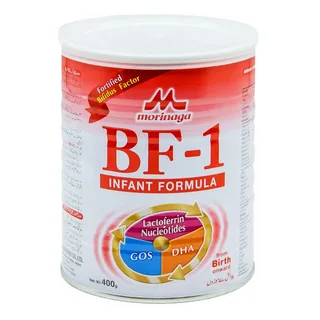Choosing an allergy-friendly baby formula is crucial for infants who experience allergic reactions to standard formulas. Understanding what to look for and how to differentiate between various options can help parents ensure their baby receives appropriate nutrition without triggering allergies.
Understanding Formula Allergies in Babies
Babies can develop allergies to proteins found in milk-based formulas, such as cow’s milk protein or soy. These allergies can manifest as skin rashes, gastrointestinal issues, respiratory problems, and general discomfort. Identifying and addressing these allergies early is essential for the baby’s health and comfort.
Key Features to Consider in Allergy-Friendly Formulas
When selecting an allergy-friendly formula for your baby, consider the following features:
Hypoallergenic Formulas
Look for formulas labeled as hypoallergenic, which are specifically designed to minimize the risk of allergic reactions. These formulas may be partially hydrolyzed or extensively hydrolyzed, breaking down proteins into smaller fragments that are less likely to provoke an immune response.
Extensively Hydrolyzed Formulas
Extensively hydrolyzed formulas are recommended for babies with moderate to severe allergies. These formulas undergo thorough protein breakdown, reducing allergenic potential while still providing essential nutrients for growth and development.
Amino Acid-Based Formulas
Amino acid-based formulas are the most hypoallergenic option available. They contain individual amino acids instead of whole proteins, making them suitable for babies with severe allergies who cannot tolerate hydrolyzed formulas.
Recommended Brands and Options
Consider these allergy-friendly formulas that are highly recommended by pediatricians and trusted by parents:
- Nutramigen with Enflora LGG: This extensively hydrolyzed formula is effective for babies with cow’s milk protein allergies. It includes probiotics to support digestive health and reduce colic symptoms.
- Similac Alimentum: Another extensively hydrolyzed formula, Similac Alimentum, is known for its ability to alleviate colic symptoms caused by protein sensitivity.
- Neocate Infant DHA/ARA: An amino acid-based formula, Neocate is suitable for babies with severe allergies. It provides complete nutrition while being hypoallergenic and easy to digest.
- EleCare Infant: Similar to Neocate, EleCare is an amino acid-based formula designed for infants with severe allergies and gastrointestinal conditions.
Tips for Selecting and Using Allergy-Friendly Formulas
Here are some practical tips to help you choose and use allergy-friendly formulas for your baby:
Consult Your Pediatrician
Always consult with your pediatrician before switching formulas, especially if your baby shows signs of allergies. Your pediatrician can recommend the most suitable formula based on your baby’s specific needs and medical history.
Read Labels Carefully
Check product labels for indications that the formula is hypoallergenic, extensively hydrolyzed, or amino acid-based. These labels ensure the formula meets the nutritional needs of babies with allergies.
Monitor Your Baby’s Response
When introducing a new formula, monitor your baby closely for any allergic reactions or digestive issues. If symptoms persist or worsen, contact your pediatrician promptly for further guidance.
Conclusion
Choosing the right allergy-friendly formula for babies with allergies to ensure they receive adequate nutrition without experiencing discomfort or allergic reactions. Hypoallergenic, extensively hydrolyzed, and amino acid-based formulas offer viable options for managing allergies effectively. By understanding what to look for and consulting with healthcare professionals, parents can make informed decisions that support their baby’s health and well-being.


